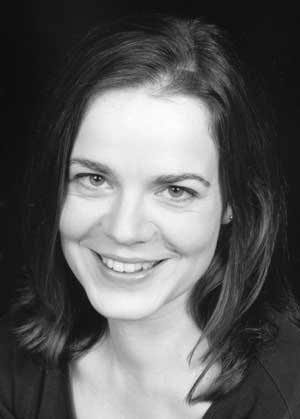|
 |
Helen Castor Interview
Posted on 30 November 2010. © Copyright 2004-2026 WriteWords
|
WriteWords talks to Helen Castor, historical biographer
 |
|
Helen Castor
|
Tell us all about your writing background - what you’ve written (a potted history will do, highlighting notable achievements etc) and what you’re currently writing
My first book was a version of my PhD thesis – a very different, much more technical sort of writing. So my first ‘proper’ book was Blood & Roses, a biography of the fifteenth-century Paston family, based on their letters, and set against the backdrop of the Wars of the Roses. (It was longlisted for the Samuel Johnson Prize in 2005, and then won the English Association’s Beatrice White Prize in 2006 – very exciting!)
After that, I decided to move from an intimate family story to a huge narrative spanning half a millennium, with the story of the moment when England was first faced with the reality of a female monarch, and of the women who had held power one way or another in the centuries before. It took me a while, but Faber published She-Wolves: The Women Who Ruled England Before Elizabeth this October. Now I’ve got to decide what to do next…
Other work besides writing; eg. Editing, dramaturgy, tutoring, and how it works/worked for/against your own writing
I used to be a full-time academic, so I used to do a lot of undergraduate teaching. I still teach a little, and do some postgraduate examining. Teaching does help me clarify what it is that I value in historical analysis and writing – but teaching full-time is a full-time job. I’m in awe of people who manage to write round the edges, but my last two books wouldn’t have happened if I’d still been doing my previous job, which included a lot of admin and pastoral care as well as teaching and examining. I’m very lucky to have had the chance to concentrate on writing for the last eight years (however hair-raising it’s sometimes felt to have left behind the security of a salary).
How did you start writing?
I set out to be a historian – but you can’t be a historian without writing. I had wonderful history teachers at school, and I suppose it was then that I first started to be conscious of the fact that putting words on a page was my way of reconnecting with the past. I’ve never been the kind of person who writes all the time as a way of expressing themselves – but I have always loved the power and precision of words
Who are your favourite writers and why?
Hilary Mantel. She’s a wonderful historian as well as a superlative novelist. She writes with such utter lucidity and extraordinary humanity – the power and precision of words, in action. Wolf Hall and A Place of Greater Safety are two of the most remarkable historical books I’ve ever read.
How did you get your first agent/ commission?
My sister Harriet (Castor Jeffery – a hugely talented writer, and much more of a ‘writer’ than me) had already been represented by Patrick Walsh of Conville & Walsh, so when I had the idea for Blood & Roses I wrote to him on spec. He gave me a lot of encouragement and some phenomenally good advice about how to put together a proposal, which took me six months, and then he did a phenomenally good job of selling it. That was the point at which I was able to give up my job. Now Patrick and Walter Donohue, my brilliant editor at Faber, seem to know exactly when to leave me alone, when to give me a push and when to hold my hand.
What's the worst thing about writing?
It’s really hard. For me, at least! Every word is like getting blood out of a stone.
And the best?
When the book or piece is finished – not (ever) perfect, but there, with an integrity and an existence that seems independent from me.
Tell us what kind of responses you get from audiences\ readers.
The warmth of an audience who have given up their time to come and hear you speak because they’re interested in the stories you’ve told in a book is a hugely sustaining and heartening thing, especially when writing the book has necessarily been such a solitary process. Thought-provoking, too, when they come up with questions you hadn’t expected. I’m not sure it has a direct influence on my writing, though – other than much-valued encouragement that there are other people interested in the kind of stories I want to tell
What was your breakthrough moment?
Faber giving me a contract for Blood & Roses. Suddenly a new world opened up in which it was possible to imagine writing for a living.
What inspires you to write?
I’ve always loved history, and it’s a privilege to spend my working life grappling with the past and constructing the best versions I can of the lives of people I find fascinating.
|
Comments by other Members
| |
|
|
|

 Follow us on Twitter |
Articles |
Site Tour |
Help |
Terms |
Privacy |
About | Contact |
Follow us on Twitter |
Articles |
Site Tour |
Help |
Terms |
Privacy |
About | Contact |

 Comments by other Members
Comments by other Members


